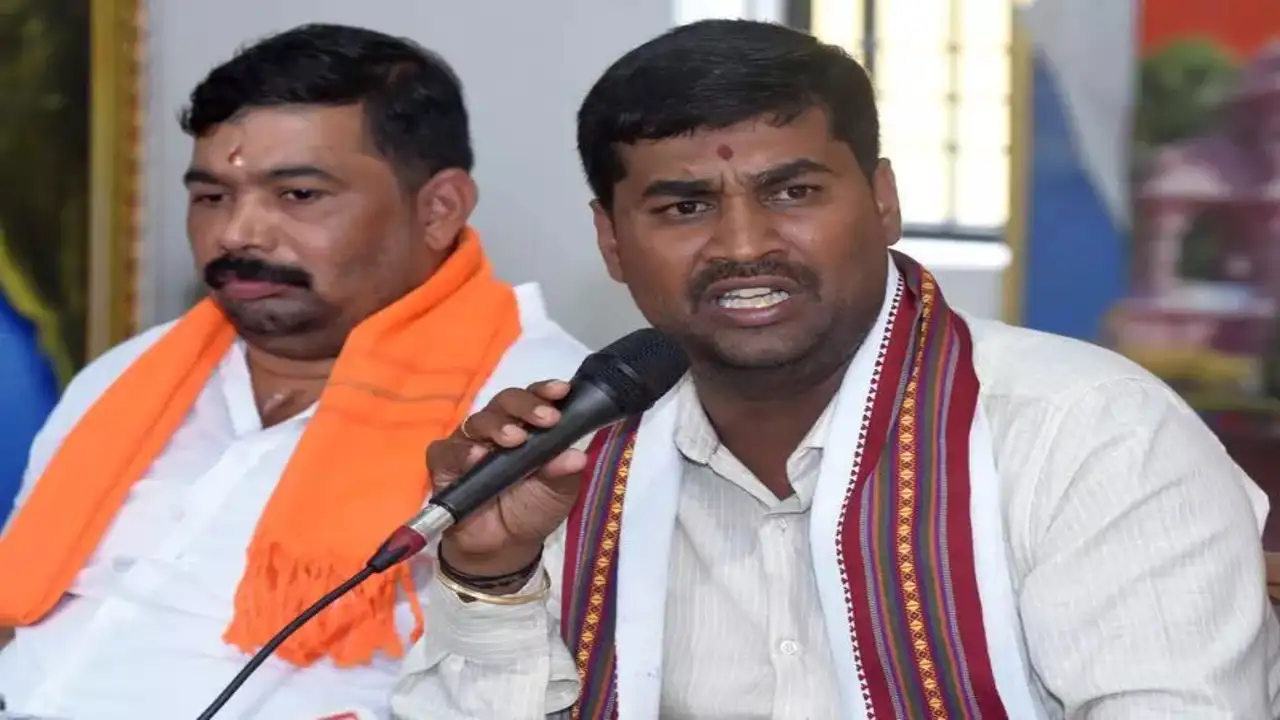
NGOCSTIP – Girls Say Bajrang Dal Abused Them after surviving a harrowing ordeal involving human trafficking and forced religious conversion. The three young women, previously identified as victims, have now taken a bold step by filing a complaint with the Chhattisgarh Women’s Commission. Their claims are deeply troubling. They allege that Bajrang Dal activists harassed and abused them within the Durg Government Railway Police station, a place they should have been safe. These allegations have triggered significant concern from the public and women’s rights groups. In response, the Chhattisgarh Women’s Commission has demanded CCTV footage from the location. Authorities have also issued notices to police officers involved and have set the next hearing for September 2. These developments underscore systemic vulnerabilities in protecting survivors of trafficking, especially when further trauma arises from those meant to help.
The claim Girls Say Bajrang Dal Abused Them inside a police station paints a disturbing picture. Survivors of trafficking should receive protection and care after rescue, not additional violence or humiliation. Instead, the three young women reported that activists confronted them while they were still under the care of law enforcement. These activists allegedly subjected them to verbal abuse, coercive questioning, and psychological intimidation. The setting, inside a government railway police station, raises alarm bells about oversight and accountability. Survivors expected protection and privacy but instead found themselves re-traumatized. The Women’s Commission responded by seeking visual evidence and demanding explanations from police personnel on duty. Activists have denied wrongdoing but public trust has already been shaken. This event forces a larger conversation about how authorities handle rescued victims and the need to prevent secondary abuse during legal or religious interventions.
“Read about: Romance or Trap? Singaporean Woman Duped on Tinder, Forced into Sex Work in Dubai!”
The intervention by the Chhattisgarh Women’s Commission shows the case’s urgency and sensitivity. Upon receiving the complaint, the panel acted quickly. It requested CCTV footage from the Durg GRP station and summoned multiple officers to explain their conduct. Legal notices were sent to responsible personnel. The commission also scheduled a formal hearing on September 2 to examine the details. This step was not just procedural but symbolic. It affirmed the voices of the young survivors who stepped forward despite social pressure. Although no arrests have been made yet, these early steps indicate that institutional scrutiny is increasing. In cases like these, government bodies play a critical role in restoring public confidence. The commission’s actions highlight how accountability can begin even when powerful groups are involved. Survivors of trafficking must know that the legal system supports them, regardless of external affiliations or ideological tensions.
“Read more: Looks Healthy but Hides a Danger? Early Signs of Microcephaly Parents Often Miss!”
This incident also reveals a deeper, ongoing issue in India’s fight against trafficking. Survivors often face additional trauma even after rescue. Girls Say Bajrang Dal Abused Them becomes a headline that reflects a recurring pattern where victims are doubted, silenced, or exposed to vigilante pressure. Human trafficking is already a brutal crime. Adding social stigma or institutional neglect worsens the situation. Reports frequently show that victims, especially women and girls, lack consistent access to mental health support, safe housing, or legal protection. Religious or political interference in such cases further complicates recovery. In a society where survivors are often seen as liabilities, not humans in healing, the path to justice is riddled with barriers. Until strong frameworks exist to support victims and penalize unlawful intervention, incidents like this may continue. Policy reforms, police training, and community sensitization must evolve alongside rescue operations.
The story sparked immediate reaction across media outlets and civil society platforms. Human rights advocates, women’s organizations, and digital commentators condemned the reported abuse. Demands for transparent investigations have grown louder. Public anger stems not only from the specific allegations but from the broader fear that institutions sometimes fail those they are meant to protect. News coverage of Girls Say Bajrang Dal Abused Them increased awareness but also magnified distrust in law enforcement’s neutrality. Online conversations now push for better protection protocols and nonpartisan police practices. While Bajrang Dal representatives denied all accusations, many observers questioned how activists gained access to a secured police environment. With the hearing set for September 2, the spotlight remains fixed on Durg and the officials involved. Whether justice prevails will depend on the integrity of the investigation and the resilience of those brave enough to speak.